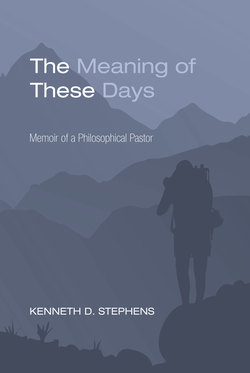Читать книгу The Meaning of These Days - Kenneth Daniel Stephens - Страница 4
На сайте Литреса книга снята с продажи.
Preface
ОглавлениеThis book started as a tract in philosophical theology after I left my profession as an academic philosopher and began my work as a pastor. Soon it turned into this memoir, in which I was able to write how philosophy and religion interacted in the joys and travails of my personal and pastoral life. In this form the book gathered a certain literary significance and a novelistic appeal for seekers, pilgrims, and lost souls on diverse paths and no-paths.
Indeed the book, having been written intermittently over the last thirty years of my ministry, came of age trying to come to grips with the two extremes of the contemporary spiritual quandary. The one side was expressed by Jane Kramer recently, writing in The New Yorker, that we live in fierce theological times. She was referring to Islamic radicalism, its reproach of Western decadence and secularism, and its espousal of its own religious absolutism and exclusivism. She said this surely knowing that Christian fundamentalism thrives on the same critique and narrowmindedness. The other side is the assault we are witnessing on religion itself by some of its cultured despisers, a term used early in the twentieth century by the great liberal theologian Friederich Schleiermacher.
Among the many friends to whom I owe thanks for help and encouragement in the writing of my manuscript are John Cobb, Jr. and Gilchrist McLaren. Cobb is the world-renowned process theologian in Claremont, California. He became my seminary teacher in 1961 and has been my friend ever since. McLaren has been my friend since my college days in India. I found the suggestions of Judy Rollins, a superb writer in her own right, very helpful indeed. Thanks to her and to Connie Kimos for editing this work in such a perceptive, thoughtful, and sensitive way. She was also kind in her personal remarks, generously given along the way.
I have changed some names and details in order to protect people from what might be taken as aspersions on their character, though no such slights are ever intended.
KDS
